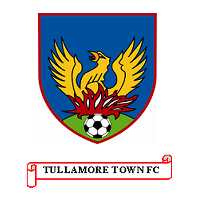Fostering Academic Integrity: Understanding, Confronting, and Shaping the Future
In the world of education, keeping things honest and authentic is a piece of a task. As students, we have been given this double-duty factor going on. We need to parent out the nitty-gritty of instructional dishonesty and team as much as provide you with answers that really work.
So, what is the deal with instructional dishonesty? We're talking about stuff like copying, cheating, making up information, and even teaming up while we're purported to pass solo. It's like breaking the policies of equity and honesty inside the international of mastering. We've got to preserve a close eye on this stuff to make certain our educational adventure remains at the up-and-up.
But here's the cool element - Edulegit.com has changed the game. Keeping things honest is like flexing our mind muscle groups. It's making sure that the grades and achievements we rating in reality show off what we are made of. It's like an actual badge of honor for our brainpower.
Understanding Academic Dishonesty
When it involves academic dishonesty, it's like a puzzle with many pieces, and it messes up the heart and soul of learning. It messes with the heart of what learning is all about. Take plagiarism, for example—it's like borrowing someone else's work and pretending it's ours. We've got to be tuned in to catch these moments. From direct copying to insufficient citation, recognizing and avoiding these practices is essential.
Traditional forms of cheating, whether through unauthorized aids or collaborative efforts during exams, compromise the sanctity of the assessment process. Unpacking the motivations behind such behavior is vital for effective prevention.
In research-centric disciplines, fabricating data undermines the pursuit of knowledge. Students must grasp the significance of accurate reporting, recognizing that the authenticity of our contributions shapes the scholarly landscape.
Collaborating on assignments where individual work is mandated can lead to collusion. Balancing teamwork and taking personal responsibility is like keeping the good vibes in our academic journey. It's what keeps things fair and square.
Common Motivations Behind Academic Dishonesty
The reasons behind academic dishonesty often boil down to feeling scared of failing, dealing with crazy pressures to succeed, and not having the best handle on managing time. Now, we all get a bit jittery about failing—it's part of the learning gig, right? But instead of freaking out, let's see it as a chance to grow.
When life or school puts this crazy pressure on us to be super successful, it can push some of us towards not-so-honest choices. But what if we flip the script? What if we see success as this cool journey of personal growth, rather than some fixed endpoint? It has the potential to completely shift the game.
And hey, if time feels like it's slipping away, leading us into a city of procrastination and last-minute scrambles, that's a red flag. It's a slippery slope towards being a bit dishonest. So, let's step up our game and figure out some smart ways to manage our time. It's a proactive move toward keeping things on the straight and narrow in our academic adventures.
Trends in Academic Dishonesty
| Trends in Academic Dishonesty | Impact of Technology and Online Platforms |
|---|---|
| The advent of technology has introduced new dimensions to academic dishonesty. Online cheating tools and websites pose significant challenges, tempting students into unethical practices. | Likewise, social media can accidentally become a part of the academic honesty challenge by making it a breeze to share info. But, you know, acknowledging these hiccups is the starting point for fixing them up. |
| The shift to remote learning in recent times has intensified these challenges. In unsupervised environments, students face increased temptations. | Collaborative efforts between educators and students are essential to implement strategies that maintain academic integrity in virtual classrooms. Innovative assessment methods and transparent communication about expectations form the backbone of these strategies. |
Countermeasures and Strategies
In the battle against academic dishonesty, educators become the heroes, shaping a culture where honesty is the star. They make things crystal clear, give positive vibes, and create an environment that values being real.
And here's where tech steps in—tools like anti-plagiarism software and online proctoring become the sidekicks for educators. They help keep things honest, acting like superhero shields against dishonest moves. Getting friendly with these tools is key to avoiding any accidental oops moments.
Moreover, individual accountability is paramount. Recognizing the importance of personal integrity and adhering to practical tips, such as effective time management and seeking help when needed, empower students to navigate their academic responsibilities ethically.
The Future of Academic Integrity
As we envision the future of academic integrity, the emphasis should be on developing ethical decision-making skills. Nurturing a positive learning environment involves collaboration among students, educators, and institutions. Embracing technological advancements responsibly ensures a harmonious integration into the academic landscape.
In conclusion, tackling academic dishonesty demands a united effort from students, educators, and institutions. By comprehending the types, motivations, and trends associated with academic dishonesty, we can implement effective countermeasures. As students, let us commit to upholding the values of honesty, fostering an environment where learning flourishes, and success is earned through genuine effort. Together, we can build a foundation that ensures the true value of our educational achievements, shaping a future where academic integrity is prioritized.
